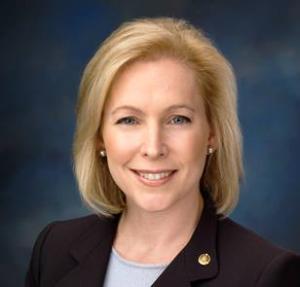Colombian President Santos is opening a new chapter in that country's struggle to come to grips with coca and cocaine production. It is happening at the same time that peace negotiations with the long-running FARC insurgency have reached a breakthrough too.
A sitting US senator addresses the marijuana industry, California cops raid an Indian reservation grow op, Florida signature-gathering for another initiative is well underway, and more.
A strange tale out of Kentucky, and two New York cops get slapped on the wrist for their misdeeds.
It's looking like Arizona will vote on marijuana legalization next year, the Obama administration eases restrictions on the opiate maintenance drug buprenorphine, needle exchanges expand in West Virginia, and more.
Michigan has two legalization initiative campaigns and now it has a legalization bill, Ohio's legalization initiative ballot language is set, a key UFCW organizer gets indicted, Chuck Schumer calls on the DEA to do something about Chinese drug sales web sites, and more.
Signature gathering is getting underway in Massachusetts; the Albuquerque city council votes narrowly for decriminalization, but faces a possible veto; New York's junior senator addressed the National Cannabis Industry Association, and more.
The era of aerial herbicide spraying of Colombia's coca crops is at an end, California cops raid an Indian reservation marijuana operation, medical marijuana bills are moving in Michigan, and more.
Marking the end of an era, Colombian President Juan Manuel Santos Tuesday unveiled a new policy for dealing with coca cultivation and cocaine production, one that will rely on crop substitution and alternative development, with manual crop eradication only to be used as a last resort.

harvesting the coca crop in Colombia (dea.gov)
Colombia's years-long policy of attempting to eradicate coca crops by spraying fields with herbicides will be history at the end of this month. That policy was backed and financed by the United States as part of its multi-billion dollar effort to defeat drug trafficking and, later, to defeat the FARC.
Despite the billions spent, Colombia remains the world's largest coca and cocaine producer, according to the US government. While production is down from record levels early this century, it rose 39% last year to about 276,000 acres. Figures from the UN Office on Drugs and Crime show a lower extent of cultivation (170,000 acres), but echo that it is on the increase. According to UNODC, the increase was 44% last year.
The plan announced Tuesday, the Integrated Plan for Crop Substitution, has as its goals reducing the crime associated with the drug trade by reorienting policing efforts toward processing, trafficking, and money laundering -- not harassing peasants -- improving state capacity through the improvement of social, economic, and political conditions in the countryside, and dealing with drug consumption with a focus on human rights, public health, and human development.
It sets out six foci:
- Social Investment. That will include state and private spending on roads, energy supply, water supply, and investment in public health and education.
- Crop Substitution. A phased-in plan with community involvement that will create socio-economic stabilization and create new income opportunities. Agreements will be made with whole communities, not individual growers. Once a community has agreed to crop substitution, voluntary coca eradication will begin. If there is no agreement to eradicate, the government will do it manually, by force.
- Interdiction. Interdiction will continue, but in concert with the priorities of local communities and farmers. The plan also envisions "strengthening the legal tools available to fight the illegal drug business."
- Investigations and Prosecutions. The government will give top priority to going after "intermediate and top links of the drug trafficking chain," not peasant farmers.
- Prevention and Treatment. The new plan will emphasize youth prevention, as well as drug treatment using "programs founded on evidence." The plan calls for an increase in the quantity and quality of drug treatment offered.
- Institutional Reforms. The plan will create a new agency for alternative development in illicit cultivation zones. The agency will establish metrics for success, which will be made public on a regular basis.
The government's plan is in line with the recommendations of its Advisory Commission on Drug Policy in Colombia, which in a May report, called for drug policy to be based on evidence and the principles of public health, harm reduction and human rights, with effective state institutions to coordinate policy implementation. Combating the drug trade should focus on trafficking organizations and money laundering, and peasant coca growers should be offered alternative development, not criminal prosecution, the report also recommended. (The report and the issues it addressed were recently discussed at this Brookings Institution event.)

Aerial eradication ends at the end of this month. (wikipedia.org)
"With this program we hope to have a twofold result: reducing the illicit cultivation and improving the living conditions of hundreds of thousands of peasants," Santos said in
a speech from the presidential palace.
The plan will focus on the southern provinces of Narino and Putumayo, "where there are some 26,000 families that produce coca," Santos said. "Work will be done to construct roads, schools, health clinics, aqueducts and service networks," he added, noting that coca cultivation is most extensive in areas where the state is weakest.
While the government will seek agreements with communities to voluntarily eradicate their coca crops, "if an agreement is not reached, forced eradication will be resorted to," Santos warned. Forced eradication has led to conflict between farmers and eradicators in the past, with nearly 200 eradicators killed in attacks from unhappy peasants or guerrillas of the FARC, which has taxed and protected coca cultivation in areas under its control.
When Santos arrived in Havana Wednesday he was sounding optimistic, both about the new approach to coca cultivation and about the prospects for peace.
"We've already started. And if we can move forward now, imagine how much we could move forward if we do away with the conflict," said Santos. "We've already talked with the FARC about joint plans for the substitution of crops. Imagine what this means. That the FARC, instead of defending illicit crops and the entire drug trafficking chain, will help the state in their eradication. As the slogan says, with peace we will do more," Santos said.
back to top
A sitting US senator addresses the marijuana industry, California cops raid an Indian reservation grow op, Florida signature-gathering for another initiative is well underway, and more.
NationalOn Monday, a US senator addressed an industry meeting and called for the feds to butt out. Sen. Kirsten Gillibrand (D-NY) spoke at the National Cannabis Industry Association meeting in New York and told industry professionals she is pushing a bill she cosponsored last March with Sens. Cory Booker (D-NJ) and Rand Paul (R-KY) that would bar the federal government from interfering with marijuana in states where it is legal, either medicinally or recreationally. "There's a conflict between state and federal statute that confuses doctors, patients and providers alike," she said. "People aren't sure what's legal, what's not, and the gray area that resulted is hindering health care and the industry's development."
California
Last Thursday, a union organizer was indicted on federal corruption charges. Dan Rush, a pioneer in organizing marijuana industry workers for the United Food and Commercial Workers (UFCW), was indicted on federal corruption, attempted extortion, and money laundering charges in Oakland. Rush is accused of using his position "to obtain money and other things" over a five-year period. He is accused of taking kickbacks from an attorney for referring medical marijuana business clients to him and of accepting $550,000 in debt forgiveness from a dispensary operator (who was also acting as an FBI informant at the time). Rush and his attorneys have denied the charges.
Last Friday, a state monopoly medical marijuana initiative was filed. Foes of marijuana reform in the Golden State have filed an initiative that would eliminate private marijuana cultivation and privately-owned dispensaries "in the interest of public safety." They would be replaced by one "state-owned cultivation site," which would supply "state-owned dispensaries." The initiative would also raise the minimum age for patients from 18 to 21. The initiative's proponents include anti-marijuana campaigner the Rev. Ron Allen, Citizens Against Legalizing Marijuana, and the Take Back America campaign.
On Tuesday, California cops raided an Indian reservation grow operation. Mendocino County sheriff's deputies Tuesday raided a commercial marijuana cultivation operation on the Pinoleville Pomo Nation reservation in Ukiah, cutting down about 400 plants, seizing about 100 pounds of trimmed buds, and an undetermined quantity of cannabis oil. The county maintains the operation is illegal under the state's medical marijuana laws.
Connecticut
Last Friday, dispensaries came a step closer to reality. The state Department of Consumer Protection announced that it has received 19 new applications for dispensaries in response to its June request. Three dispensaries will be selected to operate in New Haven or Fairfield counties.
Florida
Last Friday, initiative organizers said they had half a million signatures. The United for Care campaign to put medical marijuana on the ballot last year reports that it has already gathered 500,000 signatures. They need 683,149 valid voter signatures by February 1 to qualify. This is the same group that was behind the 2014 medical marijuana initiative, which garnered 58% of the vote, but came up short because constitutional amendments require 60% to pass.
Michigan
On Tuesday, a House panel advanced a package of medical marijuana bills. The House Judiciary Committee Tuesday passed a package of bills aimed at legalizing dispensaries and edible forms of medical marijuana. The bills have tighter rules than similar measures that failed last year, and some patient advocates are grumbling. Seed-to-sale tracking is one new addition; an 8% excise tax is another. Now it will be up to the legislature's GOP leadership to advance the bills or not.
New Jersey
On Monday, news came that the state will get a fourth dispensary. The state Department of Health has issued a permit for Compassionate Sciences in Bellmawr. It will becomes the state's fourth dispensary when it opens next month.
Pennsylvania
On Tuesday, patients and parents demanded action on pending medical marijuana legislation. Supporters of delayed medical marijuana legislation rallied at the state capitol Tuesday to urge solons to act on a pending bill. A bill passed the state Senate in May, and House leaders earlier this summer created a group to draft a version that would pass in the GOP-led chamber. Protestors urged House leaders to just hold a vote on the Senate-passed bill.
[For extensive information about the medical marijuana debate, presented in a neutral format, visit MedicalMarijuana.ProCon.org.]
back to top
A strange tale out of Kentucky, and two New York cops get slapped on the wrist for their misdeeds. Let's get to it:
In Louisville, Kentucky, a Bullitt County sheriff's special deputy was indicted last Friday on charges he was a major drug trafficker and threatened to kill Kentucky narcotics officers. Special Deputy Chris Mattingly has been charged with conspiracy to distribute over a ton of marijuana. He went down after he surfaced on a wiretap of a drug cartel member in Riverside, California, and since then, police working with information developed from there have made repeated seizures of hundreds or tens of thousands of dollars in cash from vehicles associated with Mattingly.In Troy, New York, a former Troy police officer was sentenced last Thursday to probation for telling a drug dealer he was being targeted in a raid. Brian Gross, 33, a member of the Community Narcotics Enforcement Team, admitted to disclosing information contained in a wiretap warrant. He told a female friend the narcs were investigating her brother and planned to raid his home. The targeted dealer apparently spread the word, because police hit five houses that day as part of a drug investigation and came up empty-handed.
In White Plains, New York, a former Yonkers narcotics detective was sentenced last Thursday to spend eight weekends in jail for lying to get a search warrant for a drug raid in which a man fell to his death. Christian Koch had pleaded guilty to perjury charges along with his partner, former officer Neil Vera, who got six months of weekends in jail.
back to top
It's looking like Arizona will vote on marijuana legalization next year, the Obama administration eases restrictions on the opiate maintenance drug buprenorphine, needle exchanges expand in West Virginia, and more.
Marijuana PolicyArizona Legalization Initiative on Track With Signature Gathering. The Marijuana Policy Project-backed Campaign to Regulate Marijuana Like Alcohol said Thursday that it has already gathered 75,000 signatures, putting the group about one-third of the way to its goal of gathering 230,000 by July 2016. The group needs more than 150,000 valid voter signatures to qualify for the November 2016 ballot. A second group, Arizonans for Mindful Regulation wants to put its own initiative on the ballot, but has gathered only about 6,000 signatures so far.
Heroin and Prescription Opiates
Obama Administration Makes Big Announcement Addressing Heroin Epidemic. Health and Human Services Secretary Sylvia Burrell said Thursday that her agency would rewrite regulations to make it easier for doctors to treat opiate addiction with buprenorphine in a bid to get a handle on opiate abuse and addiction. "We need to lift people out of opioid-use disorder through medication-assisted treatment," Burwell said. "This epidemic is multifaceted, and we need to respond with the best solutions that medicine and behavioral therapy can provide together, so we need to increase the use of buprenorphine, which can help us treat opioid use disorder when combined with psycho-social support."
Ohio Bill Would Require Insurers to Cover Tamper-Resistant Drugs. A bipartisan pair of legislators have introduced a bill that would require insurance companies to provide coverage for tamper-resistant drugs that are more difficult to abuse. Reps. Robert Schrager (R-Findlay) and Nickie Antonion (D-Cleveland) said the measure is necessary because the long-term cost of opiate abuse in the state will cost the state millions of dollars. The bill has not yet appeared on the state legislative website.
Harm Reduction
West Virginia County to Begin Needle Exchange Program. Harrison County plans to move forward with a needle exchange/harm reduction program after hearing of the success of a similar program in Morgantown. The Morgantown exchange began in 2013, when 34 local residents tested positive for Hepatitis C. There have been 118 Hep C infections in Harrison County this year. It is a regional problem -- West Virginia and Kentucky have the highest Hep C infection rates in the country, many of them tied to intravenous drug use.
back to top
Michigan has two legalization initiative campaigns and now it has a legalization bill, Ohio's legalization initiative ballot language is set, a key UFCW organizer gets indicted, Chuck Schumer calls on the DEA to do something about Chinese drug sales websites, and more.

Hilary Clinton hints at eradication and interdiction to fight heroin. (state.gov)
Florida Rep Files Five Nanogram Drugged Driving Bill. Rep. David Kerner (D-Lake Worth) has filed House Bill 161, which would make driving with more than five nanograms of THC per milliliter of blood a drugged driving offense. The bill is named after teenager Naomi Pomerance, who died in a traffic accident last year in which the driver of the scooter on which she was riding was high on marijuana and ran a red light.
Michigan Legalization Bill Filed. Rep. Jeff Irwin (D-Ann Arbor) and six cosponsors have filed House Bill 4877 to bring full-fledged marijuana legalization to the state. The move comes as two groups are working to put legalization initiatives on the 2016 ballot.
Ohio Ballot Board Revises Legalization Initiative Ballot Language to Remove "Misleading" Characterizations. On orders from the state Supreme Court to fix "misleading" ballot language after ResponsibleOhio challenged the original version, the state Ballot Board has revised its ballot wording to describe the initiative. The ballot title, which ResponsibleOhio had also challenged, will, however, stand. It reads: "Grants a monopoly for the commercial production and sale of marijuana for recreational and medicinal purposes." The campaign had challenged the use of "monopoly" and would have preferred "personal" instead of "recreational" use.
Ohio ACLU Endorses ResponsibleOhio Initiative. The ACLU of Ohio is getting behind the controversial legalization initiative because it would "begin to move our state away from senseless, wasteful drug prohibition toward a system that is supervised, safe, efficient, legal, and operating under regulatory oversight," the group said.
Washington State Teens Do Not Face Felonies for Marijuana Possession. After reports last week that an eastern Washington prosecutor had charged three teens with felonies for marijuana possession, saying that a new law designed to regulate medical marijuana demanded the charges, the air has cleared. The new law, Senate Bill 5052, does not require that teens be charged with felonies for possessing less than 40 grams, and the prosecutor has now dropped the felony charges. Interesting take on all this at the title link.
Medical Marijuana
Feds Indict Union Organizer on Corruption Charges. Dan Rush, marijuana industry organizer for the United Food and Commercial Workers (UFCW), was indicted on federal corruption, attempted extortion, and money laundering charges in Oakland last Thursday. Rush is accused of using his position "to obtain money and other things" over a five-year period. He is accused of taking kickbacks from an attorney for referring medical marijuana business clients to him and of accepting $550,000 in debt forgiveness from a dispensary operator (who was also acting as an FBI informant at the time). Rush and his attorneys have denied the charges.
Connecticut Dispensaries Move a Step Nearer. The state Department of Consumer Protection announced last Friday that it has received 19 new applications for dispensaries in response to its June request. Three dispensaries will be selected to operate in New Haven or Fairfield counties.
Florida Initiative Organizers Say They Have Half a Million Signatures. The United for Care campaign to put medical marijuana on the ballot last year reports that it has already gathered 500,000 signatures. They need 683,149 valid voter signatures by February 1 to qualify. This is the same group that was behind the 2014 medical marijuana initiative, which garnered 58% of the vote, but came up short because constitutional amendments require 60% to pass.
Heroin and Prescription Opiates
Hillary Clinton Would Take War on Heroin Beyond US Borders. In an interview with WMUR radio in New Hampshire, the Democratic presidential contender said she would take the fight against heroin beyond the US border if necessary. "I think you have to," responded Clinton. "This has to be a comprehensive strategy. And we know that this cheap heroin that is killing so many people is coming across our border." Interdiction and eradication have long been favorite drug war strategies, but have not proven very effective.
Drug Testing
South Dakota Tribal Chairman Gets Job Back After Drug Testing Brouhaha. Sisseton-Wahpeton Oyate Tribal Chairman Bruce Renville was reinstated last Friday after being suspended for imposing drug testing on all tribal employees. In his zeal to get a grip on alcohol and drug abuse on the reservation, Renville went beyond the letter of the law. Employees who tested positive will not be punished.
Law Enforcement
Chuck Schumer Calls on DEA to Crack Down on China Drug Websites. Responding to concerns over synthetic cannabinoids, the New York Democrat is calling on the DEA to form a special unit to identify Chinese websites doing bulk sales of new psychoactive substances and ban credit card companies from doing business with them. "By simply telling the credit card companies not to deal with these sites, we can shut them down," Schumer said. "When you buy a synthetic drug, you give a credit card number. You can go on your iPhone right now and pull up some of these websites. They say 'We take Visa.' Visa would no longer take them. None of the credit card companies would take them. We could strangle them."
(This article was prepared by StoptheDrugWar.org's lobbying arm, the Drug Reform Coordination Network, which also pays the cost of maintaining this web site. DRCNet Foundation takes no positions on candidates for public office, in compliance with section 501(c)(3) of the Internal Revenue Code, and does not pay for reporting that could be interpreted or misinterpreted as doing so.)
back to top
Signature gathering is getting underway in Massachusetts; the Albuquerque city council votes narrowly for decriminalization, but faces a possible veto; New York's junior senator addressed the National Cannabis Industry Association, and more.

Sen. Kirsten Gillibrand (D-NY) addressed the NCIA in New York City yesterday. (senate.gov)
Massachusetts Legalization Initiative Campaign Rolls Out Today. One of two groups seeking to put legalization initiatives on the November 2016 ballot officially kicked off its signature gathering campaign today. The Marijuana Policy Project-backed Campaign to Regulate Marijuana Like Alcohol in Massachusetts held a Boston news conference with several state lawmakers to get the ball rolling. The campaign must collect 64,750 valid voter signatures to place the matter before the legislature. If the legislature doesn't act, the campaign would have to collect an additional 10,000 signatures to put the issue on the ballot. The other legalization campaign in the state is by Bay State Repeal.
ResponsibleOhio Will File Initiative to Expunge Old Marijuana Convictions. The group behind this year's controversial marijuana legalization initiative is preparing a second initiative that would create a process to expunge old marijuana-related convictions. The Fresh Start Act would allow for reviews to expunge convictions if their actions would no longer be considered illegal. The group needs to gather 92,000 signatures before year's end to place the issue before the legislature next year. If the legislator then refuses to act on the initiative, it could go before voters on the 2016 ballot.
Albuquerque City Council Votes (Again) to Decriminalize Marijuana Possession. The council voted 5-4 along party lines late last night to decriminalize the possession of small amounts of marijuana and paraphernalia. A similar resolution last year was vetoed by Mayor Richard Berry, but since then, voters in the region have had the opportunity to express their support for decriminalization and have done so. Bernalillo County, where Albuquerque is located, voted 60% for decrim, and every precinct in the city itself was above 50% for decrim. Is the mayor paying attention? Stay tuned.
Medical Marijuana
US Senator Addresses Industry Meeting, Calls for Feds to Butt Out. Sen. Kirsten Gillibrand (D-NY) spoke at the National Cannabis Industry Association meeting in New York Monday and told industry professionals she is pushing a bill she cosponsored last March with Sens. Cory Booker (D-NJ) and Rand Paul (R-KY) that would bar the federal government from interfering with marijuana in states where medical marijuana is legal. "There's a conflict between state and federal statute that confuses doctors, patients and providers alike," she said. "People aren't sure what's legal, what's not, and the gray area that resulted is hindering health care and the industry's development."
California State Monopoly Medical Marijuana Initiative Filed. Foes of marijuana reform in the Golden State have filed an initiative that would eliminate private marijuana cultivation and privately-owned dispensaries "in the interest of public safety." They would be replaced by one "state-owned cultivation site," which would supply "state-owned dispensaries." The initiative would also raise the minimum age for patients from 18 to 21. The initiative's proponents include anti-marijuana campaigner the Rev. Ron Allen, Citizens Against Legalizing Marijuana, and the Take Back America campaign.
New Psychoactive Substances
House Bill Would Criminalize Hundreds of New "Synthetic Drugs." Bipartisan legislation filed last week is aimed at reducing the traffic in new psychoactive substances, such as ones marketed under names like "flakka," "bath salts," and "K2." The bill is HR 3537, sponsored by Reps. Eleanor Holmes Norton (D-DC), Charlie Dent (R-PA), and David Jolly (R-FL), and it would amend the Federal Analogues Act to make it stronger, as well as adding a list of known new psychoactive substances to the Controlled Substances Act. In a bid to target distributors -- not users -- the bill narrows the act so that it does not apply to simple possession.
back to top
The era of aerial herbicide spraying of Colombia's coca crops is at an end, California cops raid an Indian reservation marijuana operation, medical marijuana bills are moving in Michigan, and more.

no more spraying Roundup on Colombia's coca fields (wikipedia.org)
Massachusetts High Court Bans Traffic Stops Solely for Suspected Marijuana. The state Supreme Judicial Court ruled Tuesday that police can't stop motorists simply because they suspect the vehicle's occupants may possess pot. The state decriminalized possession of up to an ounce in 2008, and the court based its ruling on that. "Permitting police to stop a vehicle based on reasonable suspicion that an occupant possesses marijuana does not serve [the] objectives" of the decriminalization law, Justice Margot Botsford wrote for the majority. The case is Commonwealth v. Rodriguez.
Medical Marijuana
California Indian Reservation "Megagrow" Raided by Mendocino County. Mendocino County sheriff's deputies Tuesday raided a commercial marijuana cultivation operation on the Pinoleville Pomo Nation reservation in Ukiah, cutting down about 400 plants, seizing about 100 pounds of trimmed buds, and an undetermined quantity of cannabis oil. The county maintains the operation is illegal under the state's medical marijuana laws.
Michigan House Panel Advances Medical Marijuana Bills. The House Judiciary Committee Tuesday passed a package of bills aimed at legalizing dispensaries and edible forms of medical marijuana. The bills have tighter rules than similar measures that failed last year, and some patient advocates are grumbling. Seed-to-sale tracking is one new addition; an 8% excise tax is another. Now it will be up to the legislature's GOP leadership to advance the bills or not.
New Jersey Will Get a Fourth Dispensary. The state Department of Health has issued a permit for Compassionate Sciences in Bellmawr. It will becomes the state's fourth dispensary when it opens next month.
Pennsylvania Patients, Parents Demand Action on Medical Marijuana Bill. Supporters of delayed medical marijuana legislation rallied at the state capitol Tuesday to urge solons to act on a pending bill. A bill passed the state Senate in May, and House leaders earlier this summer created a group to draft a version that would pass in the GOP-led chamber. Protestors urged House leaders to just hold a vote on the Senate-passed bill.
International
Colombia Shifts on Drug Policy; No More Aerial Eradication. President Juan Manuel Santos Tuesday unveiled a new drug strategy for Colombia that will emphasize alternative development, with forced manual eradication of coca crops to be used as a last resort. There will be no more US-backed aerial spraying of crops with herbicides.
back to top






